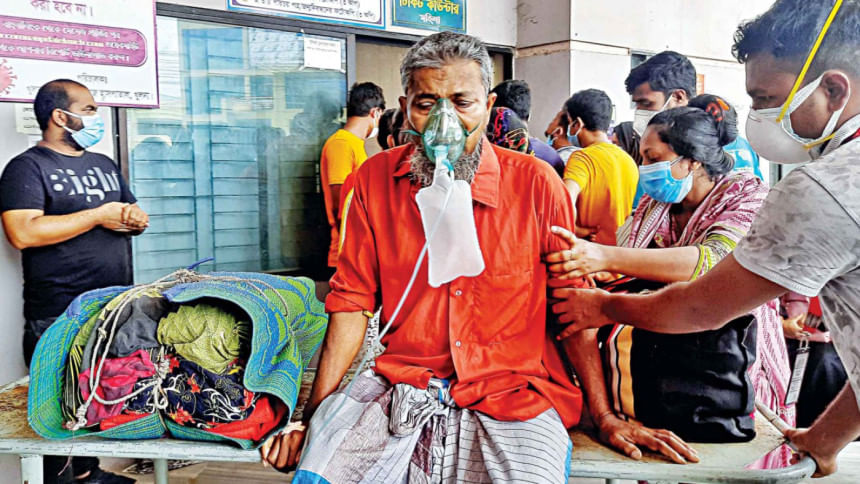When will the nasal cannula crisis be resolved?

Major district hospitals like the Khulna and Rajshahi medical college hospitals are currently overwhelmed and struggling to give treatment to Covid-19 patients. One of the main reasons behind this is: despite all districts except Panchagarh and Faridpur currently having central oxygen plants, most district hospitals are not equipped to deal with critical coronavirus patients who need high-flow oxygen because of a shortage of life-saving high-flow nasal cannulas. According to a report in this daily, of the 1,714 high-flow nasal cannulas being used at health facilities across the country, 1,059 are in Dhaka division alone. At least 56 hospitals across the country have less than five high-flow nasal cannulas and 15 hospitals have zero high-flow nasal cannulas, even though almost all hospitals have supply from central oxygen plants.
This excessive centralisation of the public health system is having disastrous impacts in certain districts, with reports surfacing of patients dying from a lack of high-flow oxygen. In Bogura's Mohammad Ali District Hospital, for example, six Covid-19 patients died on July 2—despite having eight ICU beds, the hospital had only two high-flow nasal cannulas. After news of these deaths spread, the hospital received 17 new high-flow cannulas from private donations. This really begs the question: if there already exist supplies of high-flow cannulas on the market, why are the authorities not doing everything in their power to acquire them for the hospitals needing them most? This shortage of nasal cannulas is all the more distressing when one is reminded of the health ministry's massive under-utilisation of funds in the previous fiscal year, when 24 percent of the development budget for the health sector remained unused. This failure to invest in life-saving medical equipment, that too in the middle of a ravaging pandemic, is now costing ordinary citizens their lives.
Even now, in the middle of the renewed Covid-19 crisis due to the widespread transmission of the Delta variant, we are witnessing the same lethargy and inaction from the authorities. More than two months ago, a group of Buet researchers developed a low-cost portable ventilator that can deliver oxygen to patients efficiently without electricity. Named OxyJet CPAP, this device has already been field-tested and approved for clinical trials, and could have been used as an alternative to high-flow nasal oxygen support in cases of emergency (like the ones occurring in district hospitals now). However, according to reports, Buet has not received permission from the Directorate General of Drug Administration for its product on the ground that it was not developed by a company! The High Court has now had to intervene—three days ago, it asked the concerned authorities to inform the PMO and the attorney general about OxyJet.
At almost every step of this pandemic, the decisions taken by the health authorities have been reactive. Frantic and disjointed attempts are made to come up with solutions only when a crisis emerges, and even those attempts are often delayed. The people of this country deserve a public health system that is actually equipped in advance to deal with a crisis, instead of waiting around for said crisis to occur. The authorities are already too late in dealing with the nasal cannula shortage; they cannot waste a second more in coming up with solutions to ensure no more lives are lost.

 For all latest news, follow The Daily Star's Google News channel.
For all latest news, follow The Daily Star's Google News channel. 



Comments